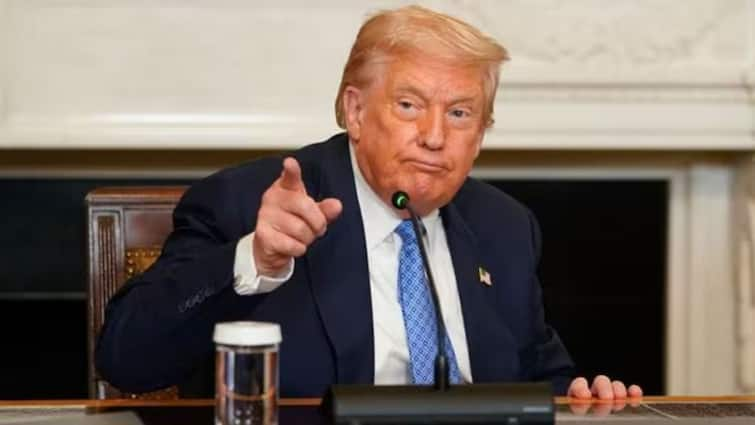The White House has moved to calm widespread anxiety among Indian tech professionals after President Donald Trump unveiled a steep new cost for H-1B visa petitions. Officials confirmed that the $100,000 charge will only apply to fresh applications, not to people who already hold the visa.
A senior US administration official told ANI that travelers with valid H-1B status do not need to scramble to return before the deadline.
“Those visiting or leaving the country, or even traveling to India, don’t need to rush back or pay the $100,000 fee. It applies only to new petitions, not to existing holders,” the official said.
White House Press Secretary Karoline Leavitt echoed that reassurance in a post on X, emphasizing that the fee is not an annual levy but a one-time charge attached to the initial petition.
“Current H-1B holders outside the US will not be charged $100,000 to re-enter,” she wrote, adding that the measure “will first apply in the next lottery cycle” and excludes renewals.
White House Press Secretary Karoline Leavitt posted on X to clarify:
To be clear:
1.) This is NOT an annual fee. It’s a one-time fee that applies only to the petition.
2.) Those who already hold H-1B visas and are currently outside of the country right now will NOT be charged $100,000 to re-enter.
H-1B visa holders can leave and re-enter the country to the same extent as they normally would; whatever ability they have to do that is not impacted by yesterday’s proclamation.
3.) This applies only to new visas, not renewals, and not current visa holders.
It will first apply in the next upcoming lottery cycle.
To be clear:
1.) This is NOT an annual fee. It’s a one-time fee that applies only to the petition.
2.) Those who already hold H-1B visas and are currently outside of the country right now will NOT be charged $100,000 to re-enter.
H-1B visa holders can leave and re-enter the…
— Karoline Leavitt (@PressSec) September 20, 2025
The clarification followed a proclamation Trump signed on Friday titled “Restriction on Entry of Certain Nonimmigrant Workers.” The order imposes the new fee on H-1B petitions filed on or after 12:01 a.m. on September 21, 2025, sparking confusion and alarm among visa holders, immigration lawyers, and tech companies.
Panic Eases After Initial Confusion
In the hours after the order, many Indian professionals rushed to change travel plans. Some canceled flights at airport gates, while others in India scrambled to return before the policy took effect, just weeks ahead of Diwali and the year-end holiday season. Several described the atmosphere as one of “panic” and “worry.”
Officials have now underscored that current visa holders and renewals are exempt, and that the $100,000 fee targets only new applicants entering the H-1B lottery.
Still, the policy is expected to face court challenges. If upheld, the rule could dramatically increase costs for US employers hiring skilled foreign workers, potentially up to $100,000 for each employee on an H-1B visa over six years, according to the New York Times.
H-1B Program at a Glance
The H-1B visa, created to help US companies fill specialized jobs requiring at least a bachelor’s degree, has long been a lifeline for the tech sector. Supporters argue it enables firms to hire talent that’s hard to find domestically. Critics, however, claim the program sometimes undercuts wages, noting salaries can start around $60,000, far below the six-figure pay many US engineers earn.
Every year, the government allocates H-1B slots through a lottery. Amazon topped recent sponsorship lists with more than 10,000 visas, followed by Tata Consultancy Services, Microsoft, Apple, and Google. California remains the biggest hub for H-1B employment. Visas are issued for three years and may be extended once, for a maximum of six.
Industry and Diplomatic Reactions
India’s IT industry body Nasscom has warned that the hefty fee could disrupt global operations for technology firms that rely on sending skilled professionals to the U.S.
Meanwhile, India’s Ministry of External Affairs said it is carefully reviewing the changes.
“The government has seen reports on the proposed restrictions to the US H-1B visa program. All stakeholders, including Indian industry, are studying the full implications,” a spokesperson noted, cautioning that the order could have “humanitarian consequences” by disrupting families.
The administration’s latest clarification may offer temporary relief, but questions remain about how the new fee will reshape the landscape for skilled workers and the companies that depend on them.


)
